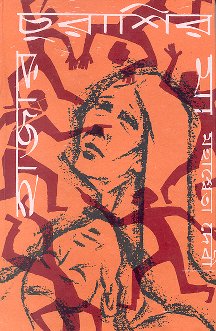Overview
Hajar Churashir Maa (means Mother of 1084) is story of a mother (Sujata) whose son (Brati), corpse number 1084 [5] in the morgue, was brutally killed by the state because of his ideology of advocating the brutal killing of class enemies, collaborators with the State and counter-revolutionaries within the Party. The story starts on the eve of Brati's death anniversary when Sujata recollects her son starting from his birth. She meets Brati's close accomplice and tries to justify Brati's actions and his revolutionary mentalities. Throughout the story she is portrayed as a strong woman who fought against the odds. She is advised to forget her son, as people like her son are what are often called "cancerous growth on the body of democracy ". [6] It's a story of a mother as she relives, years later, the death of her son in the political upheaval that left almost no home untouched. [3] Hajar Churashir Maa also portrays the other faces of the human stories that emanated from the restless political adventure of the vibrant Bengali youth, which was ruthlessly cowed by the then Congress government until the Communist Party displaced them and who then again themselves ruthlessly cowed their opponents, the same Bengali youth. [7]
This page is based on this
Wikipedia article Text is available under the
CC BY-SA 4.0 license; additional terms may apply.
Images, videos and audio are available under their respective licenses.
